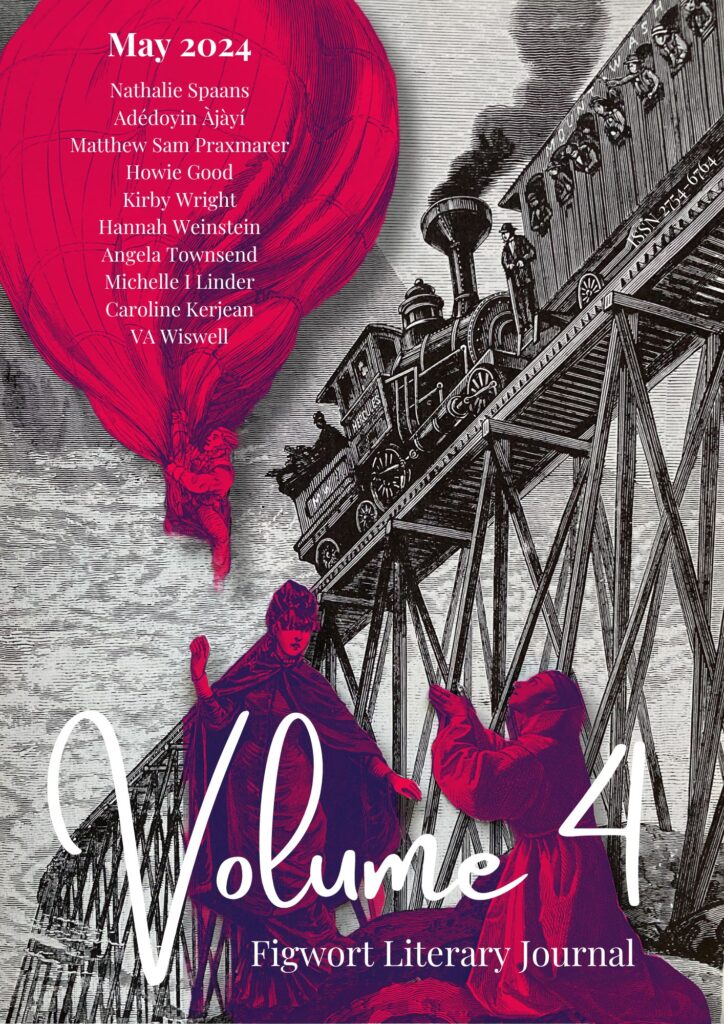Pasta Vongole
‘Pasta Vongole’ by Matthew Sam Praxmarer
I stand in the doorway. There you sit, wrapped in your shawl, that silly show blaring, Patty sitting by, your youngest, doing whatever it is she does on that phone of hers to escape the fact that you are slowly dying.
‘What’d you say Matt?’ you ask, and I am comforted that you still remember my name.
‘Hey Nona,’ I say.
‘You look like you’ve lost weight.’
‘Oh, only in the shoulders.’
‘Sit down and visit.’
We don’t really require words; ours is a convenient shorthand culled from so many decades of warmth and knowing, so many decades of love, the endearing way you tell me again and again the same old story, told again. We drive to church sometimes.
When I tell you I’m depressed, you say: ‘You should try walking.’
You always say exercise is what saved you when your husband died. I see him waving, ankle deep in sand, at the dunes, contented to be surrounded by so many grandchildren that he can’t keep track of them.
‘Don’t you think I’ve had enough?’ he says when I take him golfing and the Alzheimer’s has already taken him away somewhere where no one could see anything but that flash of anger when he asks, cutting a birthday cake and we steady his hand. Even my brother is there, long dead now, in his black T-shirt and studded wristbands.
‘You’ve said that so many times,’ I say, so low that I am fed up by our shorthand. I am back in that chair next to you, the twin chairs, the chairs in that den where the angel looks down on us, the angel mural you had painted when I was too young to remember the transformation, because in the long expanse of time it seems that angel was already there, etched into the back side of that murphy bed that too was always there, where we slept, a dead brother and a living grandchild, watching our videos and he screams; he screams out when I beat him at some game whose granular shapes would embarrass a young person today. I smell something. I walk into the kitchen.
You stand, hand deep in two parts pork and two parts beef, mashing it in your old hands, wax paper and perfume. I know to add two cups of cheese and one cup of breadcrumbs the way that other people know to put one foot in front of the other and create steps, and all that garlic chopped and all that egg. Some people don’t use egg.
‘Don’t smash them!’ you cry out, as I move my hands delicately, as though caressing that very egg, and I insist that I am not smashing them. We test the first two and still you are not satisfied. You are not satisfied because you always tried to improve upon our perfection.
Charles is drunk on the couch. You say I am very patient with him, and you are right because I am stoned, but thank Christ I straightened out in those last few months that you can see me sober, see me really, the real person in front of you comforting you and you say that only the old die this way; she doesn’t even know she’s old.
‘They don’t love each other anymore!’ I scream and I cry and you listen. How all the grandchildren treat you as their therapist, how I cry out about my parents in their separate rooms and their separate resentments, all bubbled up to the surface and incapable of retaining the shape of a marriage. How you listen.
‘She thought her grandchildren beyond blemish or flaw,’ I say in the church next to your casket, ‘but don’t get me wrong, she certainly did try to improve upon our perfection.’ I get a laugh. I’m back in the kitchen looking out into the dining room and there you stand setting the table; there you stand preparing the silver and the fragile china and the pitcher of water always with lemon. How is it that water with lemon will always make me think of you? You entertain the priest who says he likes the pasta with clams.
‘We call it pasta vongole,’ I tell him from the pulpit after he speaks. I suppose all these Italian names have their English composites.
‘Tell her not to put in too much red pepper in the artichokes,’ says Adeline, as though she has some power to command the matriarch at that special day we had, we Italians, Saint Joseph’s Day, all we stalwarts there the day before to cook in the grand hall with the murals and pictures all above us redolent of the old country. You ignore Adeline, and everyone enjoys the artichokes on that day that we sit, all in red, and how that shrew cried out when you lift the sheet off the dessert table and everyone is aghast that anyone would dare impugn you, the matriarch.
Desserts: I see you baking layer after layer of that cake you made for Donald for his eightieth, all ganache and layers and more ganache, and at the restaurant, him in his green Irish blazer, people care less for him than they do for that dessert, created out of love, love and those wax paper hands.
At your party we all sing, we all sing a song about those hands, and little John, what enthusiasm he shows, how he doesn’t take it seriously, how he doesn’t know that you will soon be felled by that cancer already festering in your pancreas. Your organs become enemies in a world where our stomachs are the most sated by your love. I am grateful.
‘You know I don’t think anyone has even read that book,’ you say of Attitudes of Gratitude that you bought for all the grandchildren. Fleece pullovers, bathrobes; you always came up with something to buy for us with your paltry income, something that still hangs in my closet but doesn’t smell like you anymore. That perfume that they leave by your casket.
‘That’s Nona,’ says Vince of the perfume, the most sentimental of the grandchildren, and Ana cries, Ana with whom you had that falling out about God knows what. I smell anise; I smell anise for the biscotti that you help me make for that party we had at school celebrating our ethnic cuisine. Of course we make biscotti, of course. We can’t very well make pasta vongole!
‘It’s cheese and powdered sugar,’ I explain to the girl who brought store bought cannoli.
Her mother cuts in. ‘No sweetie, this is a dessert.’
We sit at that same dining room table one night and play bridge late into the night; Patty is there, and her daughter Angela. How we beat them silly, how they didn’t expect that for every bid we knew what to respond as though we for one instant or another shared the same mind, knew what the other was thinking like when you would to tell me to try exercise.
‘What’d you say Matt?’ you say when I arrive to make the meatballs. ‘I heard that music you were listening to. I never knew music could be so beautiful.’
‘It was your CD, yours and Papa’s, and it was Mozart, Mozart’s best scene in his best opera when someone asks for forgiveness.’
You never ask for forgiveness when you take me to three clubs, your greatest blunder that makes me mad until you died, and then all was forgotten, all anger and all angst melting away at the sight of your dead body after I hugged your other daughter. She says we were close; I say I’m sorry. You look like you are hugging yourself. Like you hugged me. So many hugs, you so short, your arms almost around my waist, and I feel something fragile and something strong, and the story is never complete until it ends; the story is never complete until it ends.
Writer and novelist Matthew Sam Praxmarer, graduate of Vermont College of Fine Arts, is a Continuing Lecturer of English Composition at Purdue University Northwest where he maintains a steady output of radicals who learn to question the status quo and avoid the ‘naked this’ and other promiscuous pronoun usage.



